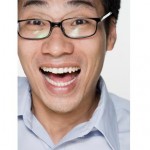 One of Martin Seligman’s chief criticisms of the psychological community is that it focuses on the negative and what is WRONG. As the founder of positive psychology he encourages us to accentuate our strengths and virtues. So, in my own little way, I propose that we create a new diagnosis, one that focuses on the positive. The Diagnositic and Statistical Manual of Mental Disorders IV (DSM IV) is considered to be THE bible of psychology with approximately 950 pages offering the specific criteria for various DISorders. On page 356 you will find the criteria for a Major Depressive Episode. But no where will you find a diagnosis about Happiness, for it is not a DISorder. So, I have taken the criteria for a Major Depressive Disorder and turned it into the criteria for Major Happiness Order (an “order” must be the opposite of a “disorder”, right)? Here, then, is the criteria for MHO:
One of Martin Seligman’s chief criticisms of the psychological community is that it focuses on the negative and what is WRONG. As the founder of positive psychology he encourages us to accentuate our strengths and virtues. So, in my own little way, I propose that we create a new diagnosis, one that focuses on the positive. The Diagnositic and Statistical Manual of Mental Disorders IV (DSM IV) is considered to be THE bible of psychology with approximately 950 pages offering the specific criteria for various DISorders. On page 356 you will find the criteria for a Major Depressive Episode. But no where will you find a diagnosis about Happiness, for it is not a DISorder. So, I have taken the criteria for a Major Depressive Disorder and turned it into the criteria for Major Happiness Order (an “order” must be the opposite of a “disorder”, right)? Here, then, is the criteria for MHO:
A. Five (or more) of the following symptoms have been present the same 2 week period and represent a change from previous functioning; at least one of the symptoms is either (1) happy mood or (2) interest or pleasure.
Note: Do not include symptoms that are clearly due to a general medical condition or mood-congruent appreciation for reality.
(1) happy mood most of the day, nearly every day, as indicated either subjective report (e.g., feels happy or fulfilled) or observation made by others (e.g. appears smiling).
(2) markedly increased interest or pleasure in all, or almost all, activities most of the day, nearly every day (as indicated either subjective account or observation made by others).
(3) stable weight with a healthy appetite.
(4) sleeps well nearly every day.
(5) psychomotor stability nearly every day (observable by others, not merely subjective feelings of stability).
(6) adequate energy nearly every day.
(7) feelings of worthiness or adequate self-esteem (which is based in reality) nearly every day.
(8) increased ability to think or concentrate, or decisiveness, nearly every day (either by subjective account or as observed by others).
(9) recurrent thoughts of life (or the joy of living), recurrent life-affirming thoughts with a specific plan for committing to life and the pursuit of happiness.
B. The symptoms do not meet criteria for a Joyful Episode
C. The symptoms cause clinically significant enjoyment in social, occupational, or other important areas of functioning.
D. The symptoms are not due to the direct physiological effects of substance (such as drug use or medication) or general medical condition.
E. The symptoms are not better accounted for by Betrothment, i.e. after marriage to a loved one, the symptoms persist for longer than 2 months or are characterized by marked improved functioning, preoccupation with blessings and worthiness, life affirmations, a clear, reality-based view of life and normal psychomotor functioning.
Frank Clayton
Licensed Professional Counselor